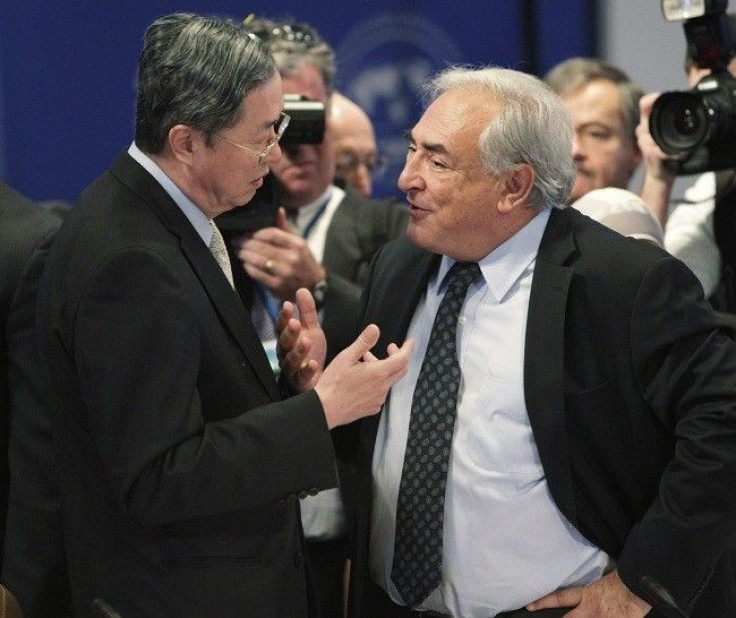IMF projects India to grow at 8.4 pct in 2011

The International Monetary Fund (IMF) said it expects India to grow at 8.4 percent in 2011 and then fall to 8 percent in 2012, unchanged from its prior estimate as the two-speed global recovery will continue, Reuters reported.
In its latest update of the World Economic Outlook (WEO), the IMF said growth remained subdued even as unemployment remained high and economic activity moderated less than expected amidst renewed stresses in the eurozone, contributing to downside risks in advanced economies.
The IMF expects global output to expand by 4.5 percent in 2011, which is 0.25 percentage points higher than its October WEO estimate as most developing countries, particularly in sub-Saharan Africa, are growing strongly.
The upward revision is due to a fiscal package announced in late 2010 in the US which is expected to boost economic growth in 2011 by 0.5 percent.
Economic activity was buoyant with inflationary pressures emerging showing some signs of overheating partly due to strong capital inflows in emerging economies, the IMF said.
The Washington-based funding agency said downside risks to the recovery remain high despite a stronger-than-expected activity in the second half of 2010 and new policy initiatives in the US boosting activity in 2011.
The IMF said urgent steps need to be taken to overcome sovereign and financial troubles in the euro zone in the form of policies to redress fiscal imbalances and to reform financial systems in advanced economies.
At the same time these steps need to be complemented by policies that keep overheating pressures in check and facilitating external rebalancing in key emerging economies, it said.
Growth in emerging and developing economies remained robust in the third quarter, buoyed by well-entrenched private demand, still accommodative policy stances, and resurgent capital inflows, the IMF said.
In advanced economies, economic activity is projected to expand by 2.5 percent during 2011-12, which is still sluggish considering the depth of the 2009 recession that is insufficient to make a significant dent in high unemployment rates.
In both 2011 and 2012, growth in emerging and developing economies is expected to remain buoyant at 6.50 percent, a modest slowdown from the 7 percent growth registered last year, broadly unchanged from the October 2010 WEO.
Developing Asia continues to grow most rapidly, but other emerging regions are also expected to continue their strong rebound, it said.
Amid generally sluggish recovery and continued high saving in key emerging Asian economies, real yields are likely to remain low through 2011, IMF said.
© Copyright IBTimes 2024. All rights reserved.











